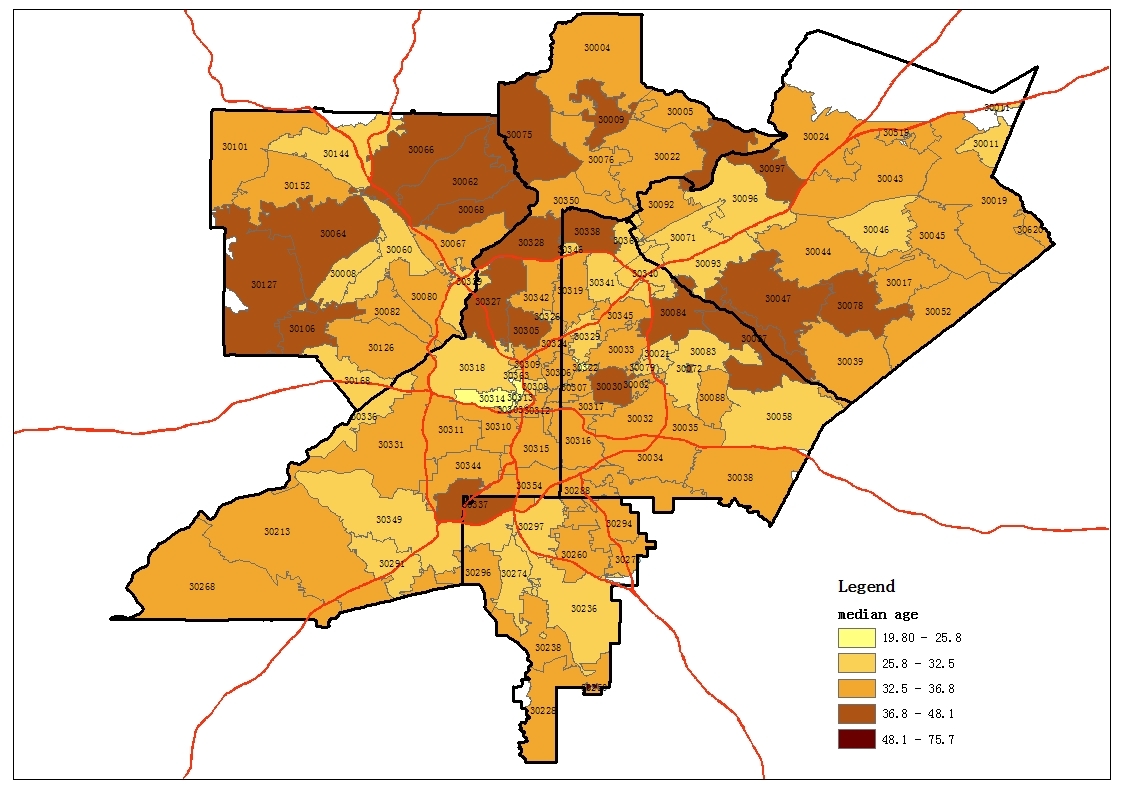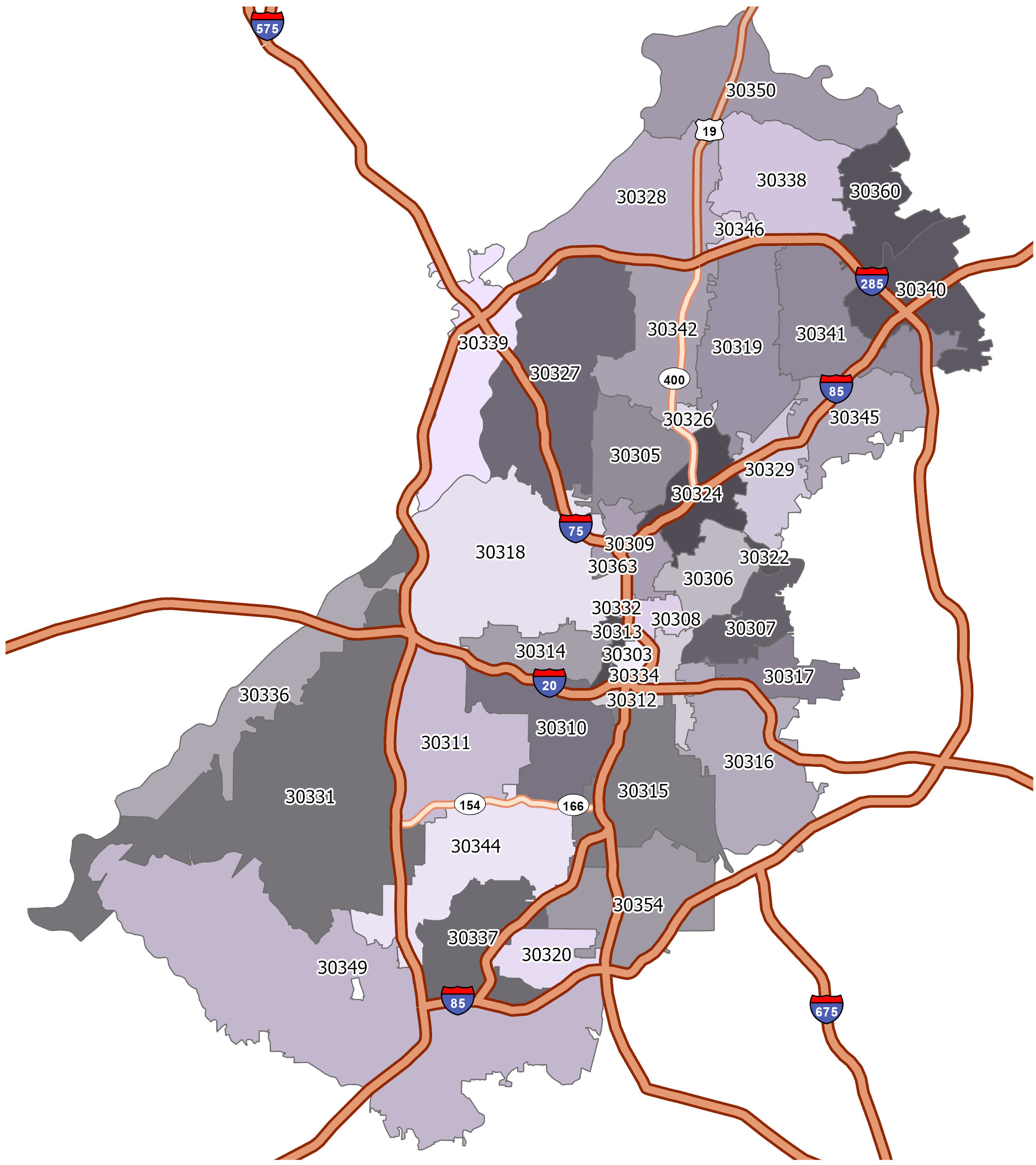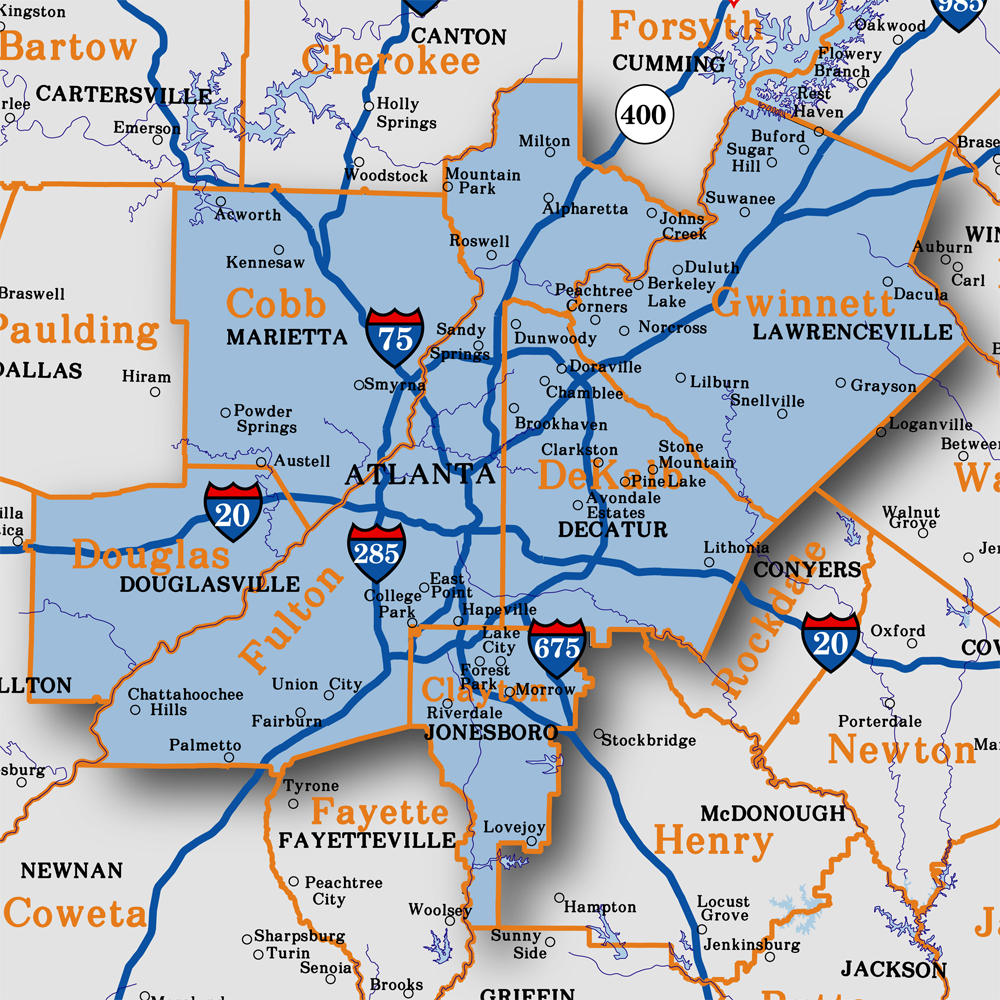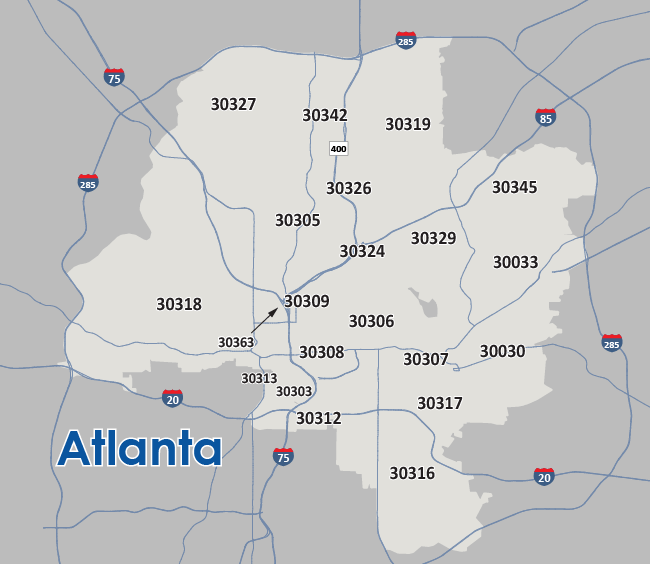Navigating the Metro Atlanta Landscape: A Comprehensive Guide to Zip Code Mapping
Related Articles: Navigating the Metro Atlanta Landscape: A Comprehensive Guide to Zip Code Mapping
Introduction
With great pleasure, we will explore the intriguing topic related to Navigating the Metro Atlanta Landscape: A Comprehensive Guide to Zip Code Mapping. Let’s weave interesting information and offer fresh perspectives to the readers.
Table of Content
Navigating the Metro Atlanta Landscape: A Comprehensive Guide to Zip Code Mapping

Metro Atlanta, a sprawling metropolis encompassing diverse neighborhoods and a vibrant economy, can be a challenging landscape to navigate. Understanding the city’s intricate network of zip codes is crucial for various purposes, from locating businesses and services to comprehending the unique characteristics of different areas. This comprehensive guide delves into the world of Metro Atlanta’s zip code map, providing a detailed exploration of its intricacies and highlighting its multifaceted benefits.
Deciphering the Zip Code System: A Foundation for Understanding
Zip codes, a system of five-digit numerical codes, serve as a fundamental tool for organizing and managing mail delivery. Each zip code corresponds to a specific geographic area, enabling efficient sorting and distribution of mail across the country. In the context of Metro Atlanta, zip codes provide a framework for understanding the city’s vast and diverse landscape, allowing for a nuanced analysis of its various neighborhoods and communities.
A Visual Representation of Metro Atlanta’s Diversity: The Zip Code Map
A zip code map of Metro Atlanta is a visual representation of the city’s intricate network of postal codes. This map provides a clear and concise overview of the geographic boundaries associated with each zip code, highlighting the unique characteristics of each area. By examining the map, one can gain insights into the city’s demographics, economic activity, and even its cultural nuances.
Unveiling the Hidden Layers: Understanding the Significance of Zip Code Data
Beyond their role in mail delivery, zip codes offer valuable data points for a wide range of applications. Businesses utilize zip code data for targeted marketing campaigns, identifying potential customers within specific geographic areas. Real estate professionals rely on zip codes to analyze property values, market trends, and neighborhood demographics. Urban planners leverage zip code data to understand population distribution, infrastructure needs, and service demands.
Exploring the Diverse Landscape: A Glimpse into Metro Atlanta’s Neighborhoods
Metro Atlanta’s zip code map reveals a tapestry of diverse neighborhoods, each with its own unique identity and character. From the bustling urban centers of downtown Atlanta to the tranquil suburban enclaves of Alpharetta and Roswell, the city’s zip codes offer a window into the rich tapestry of its communities.
Delving Deeper: A Comprehensive Look at Specific Zip Codes
Downtown Atlanta (30303, 30308, 30313): This central hub pulsates with energy, housing iconic landmarks like the Georgia Aquarium, the World of Coca-Cola, and the Centennial Olympic Park. Its high-rise buildings, bustling sidewalks, and thriving nightlife attract residents and visitors alike.
Buckhead (30305, 30326, 30327): Known for its upscale boutiques, fine dining, and luxurious residences, Buckhead exudes an air of sophistication. Its tree-lined streets and vibrant nightlife create a desirable atmosphere for residents and visitors.
Midtown (30309, 30318, 30316): A vibrant blend of residential, commercial, and cultural spaces, Midtown is home to the Atlanta Botanical Garden, the High Museum of Art, and the Fox Theatre. Its diverse population and eclectic atmosphere attract a wide range of residents.
Sandy Springs (30328, 30342, 30350): A thriving suburb with a blend of residential areas, commercial centers, and green spaces, Sandy Springs offers a peaceful escape from the city’s hustle and bustle. Its well-maintained parks, diverse dining options, and excellent schools make it a popular choice for families.
Alpharetta (30004, 30005, 30009): Located north of Atlanta, Alpharetta boasts a thriving business community, scenic parks, and a strong sense of community. Its upscale shopping centers, award-winning restaurants, and top-rated schools attract families and professionals alike.
Roswell (30075, 30076, 30078): A charming city with a rich history, Roswell offers a peaceful and family-friendly environment. Its historic downtown, vibrant arts scene, and numerous parks make it an ideal destination for those seeking a slower pace of life.
Navigating the City with Ease: Practical Applications of Zip Code Mapping
Understanding Metro Atlanta’s zip code map can significantly enhance navigation and efficiency for various tasks:
- Finding Businesses and Services: By utilizing a zip code map, individuals can easily locate businesses, restaurants, and other services within their desired area. This information can be particularly useful for finding nearby grocery stores, pharmacies, or healthcare providers.
- Planning Transportation Routes: Zip code maps can assist in planning efficient transportation routes, whether by car, public transit, or bike. By understanding the geographic boundaries of each zip code, individuals can optimize their travel time and avoid unnecessary detours.
- Exploring Neighborhoods: Zip code maps provide a visual representation of different neighborhoods, allowing individuals to explore and discover areas that align with their preferences. This can be helpful for those seeking a specific type of community, such as a family-friendly neighborhood or a vibrant urban center.
FAQs: Unraveling the Mysteries of Metro Atlanta’s Zip Code Map
Q: How many zip codes are there in Metro Atlanta?
A: Metro Atlanta encompasses a vast area, comprising over 100 distinct zip codes.
Q: What is the purpose of using zip codes in Metro Atlanta?
A: Zip codes are essential for mail delivery, providing a framework for organizing and managing mail distribution across the city. They also offer valuable data points for businesses, real estate professionals, and urban planners.
Q: How can I find the zip code for a specific address in Metro Atlanta?
A: Various online tools and resources, such as the United States Postal Service website or Google Maps, allow users to search for zip codes by entering an address.
Q: What are the benefits of using a zip code map of Metro Atlanta?
A: Zip code maps provide a visual representation of the city’s diverse neighborhoods, allowing for easy navigation and understanding of the geographic boundaries associated with each zip code. They also offer valuable data insights for various applications, including marketing, real estate, and urban planning.
Tips for Effective Zip Code Map Utilization
- Utilize Online Resources: Websites like the United States Postal Service and Google Maps offer interactive zip code maps, allowing users to explore different areas and locate specific addresses.
- Combine Zip Code Data with Other Information: Integrate zip code data with other information, such as population density, crime rates, or school ratings, to gain a more comprehensive understanding of different neighborhoods.
- Stay Updated: Zip code boundaries can change over time, so it’s essential to refer to up-to-date resources for accurate information.
Conclusion: A Powerful Tool for Navigating and Understanding Metro Atlanta
Metro Atlanta’s zip code map is a powerful tool for navigating the city’s diverse landscape, understanding its unique neighborhoods, and gaining insights into its multifaceted characteristics. By leveraging the information provided by zip code mapping, individuals can navigate the city with ease, explore its diverse communities, and make informed decisions for various purposes, including business, real estate, and personal interests.

/cdn.vox-cdn.com/uploads/chorus_image/image/58372635/Screen_Shot_2018_01_18_at_1.59.48_PM.0.png)





Closure
Thus, we hope this article has provided valuable insights into Navigating the Metro Atlanta Landscape: A Comprehensive Guide to Zip Code Mapping. We thank you for taking the time to read this article. See you in our next article!